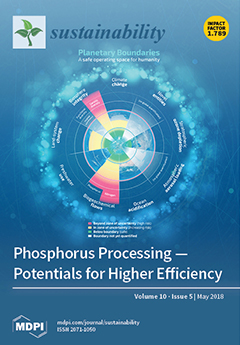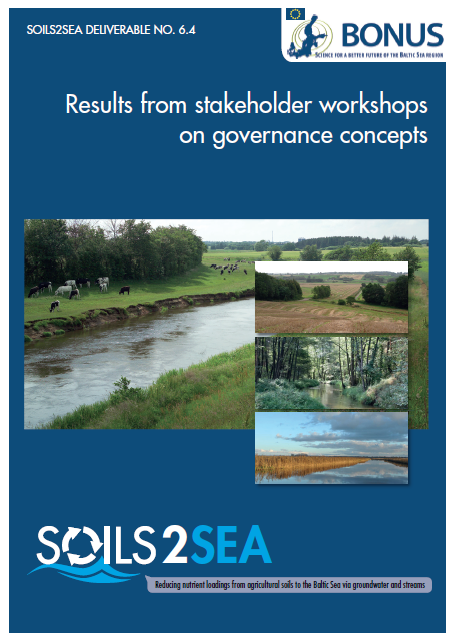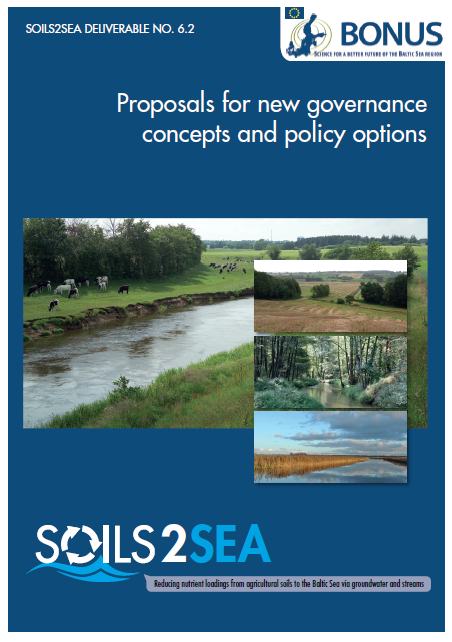Soils2Sea: Future Governance Approaches for Reducing Excess Nutrients at Local Farm Scale
- Event
- Date
-
-
- Location
- Jordberga, Sweden
The second BONUS Soils2Sea workshop in the Swedish case study region brought together project partners from BONUS Soils2Sea, as well as an engaged group of Polish and Swedish farmers, representatives from the community Mykanow, a representative from a fishing association, the Länsstyrelsen Skåne (The County Administrative Board Skåne), and Havs- och vattenmyndigheten (Swedish Marine and Water Authority). Highlights of the workshop were a film screening of a Soils2Sea documentary recently shot in Poland, presentations on the Tullstorp river restoration project, and a world cafe stakeholder discussion on different governance scenarios to regulate nutrients. The workshop was followed by a field trip to the Tullstorp river, where the different restoration measures and the recently created wetlands could be experienced hands-on.
Film Screening
The workshop took place at Jordberga Gård, within the Tullstorp catchment area. It started in the afternoon of 15 November 2016 with the Polish and Swedish stakeholders introducing themselves and getting to know each other. This welcome round was followed by the screening of the documentary film "Soils2Sea: Reducing nutrient loadings into the Baltic Sea". The movie illustrates the societal story of implementing the EU's nitrate directive at regional realities in the EU member states, particularly in the Kocinka catchment area in south central Poland. The 35-minute film can be seen at the BONUS Soils2Sea website. It was developed and produced within BONUS Soils2Sea by Grit Martinez (Ecologic Institute) and Anne Berrini (berrini films) with support from Przemyslaw Wachniew (AGH University of Science and Technology Krakow). Filmed across several small and lager scale farms in the Kocinka catchment, the film features perceptions, interpretations, and suggestions for actions by farmers, water treatment specialists, local policy makers, and scientists from an observatory perspective. Polish stakeholders were invited to join this workshop in order to start a first exchange and uptake of project results. During the following dinner, participants had the chance to discuss the issues portrayed in the film and find out more about the Kocinka catchment, with most of the farmers that were portrayed in the film being present at the workshop.
Presentations and Discussions
On 16 November 2016 the workshop continued at Jordberga Gård with a total of 27 people attending. Otto von Arnold, the host at Jordberga and Chairman of the Tullstorpsån project warmly welcomed all participants and provided some first insights into the the Tullstorpsån project, an effort to restore the 30 km long Tullstorp river and creating around 50 wetlands in its immediate vicinity. He emphasized the grassroot approach of the project, that has been focusing on 'carrots' rather than 'sticks' when involving the surrounding farmers as key actors within the project. Otto's presentation was followed by Katrine Möller Sörensen, Project Manager for the Tullstorpsån project, who provided details on the numerous goals of this pilot project, such as reducing flooding, increasing biodiversity, achieving a good ecological status, and ultimately reducing nutrient loadings in the Baltic Sea. Sörensen also outlined the project's development since the first idea came up in 2008. Karin Olssen from the County Administration Board of Skåne gave an introduction to her agency and its role as funder of the project. She outlined four crucial factors that have contributed to the project's success and goes into detail of each of the four: a holistic approach, collaboration, local commitment and the necessary financial resources. Ida Morén, KTH, and Grit Martinez, Ecologic Institute, provided insights into the BONUS Soils2Sea project's activities and results. Nico Stelljes, Ecologic Institute, introduced the workshop methods and the scenarios to be discussed during the World Café in the afternoon.
World Café and MoSCoW Prioritisation on Scenarios
BONUS Soils2Sea has an objective of developing proposals for new governance regimes suitable to spatially differentiated nutrient regulations. The group work aimed at obtaining stakeholder views on the governance issues. For this purpose three governance regimes (Appendix 1) were outlined (see more detailed desctiptions below):
- Scenario A – centralised
- Scenario B – flexible (marked oriented)
- Scenario C – self-governance (water boards)
The group work was divided up into three sub-groups, and seated at three tables, according to the World Café method. While one group consisted of the Polish stakeholders, the Swedish stakeholders were split up into two groups. Each group discussed all three governance scenarios. Subsequently, the findings were prioritised using the MoSCoW method.
For key conclusions and results, please see the document Soils2Sea Workshop Sweden - Program and Summary.
Excursion
Following the workshop, an excursion to the Tullstorpså, the Tulltsorp river, was organized. The Polish delegates together with Swedish farmers were guided by the Project Manager Katrine Möller Sörensen. The site visit provided some practical insigts on how the project was implemented and the actions that have been taken since its beginnings in 2009. We visited three sites, where measures of renaturating and wetland creation have been implemented.
More information about the Tullstorp project can be found at the Tullstorp project website.
Outlook
The workshop was the second workshop in the second round of workshops at the BONUS Soils2Sea Case Study sites. Workshops in Denmark and Poland were undertaken with a similar approach with similar scenarios in Denmark and slightly different scenarios in Poland as basis for discussion. The results from these workshops as well as the results from the first round of workshops will feed into a BONUS Soils2Sea report on new governance concepts to be published in 2017.







